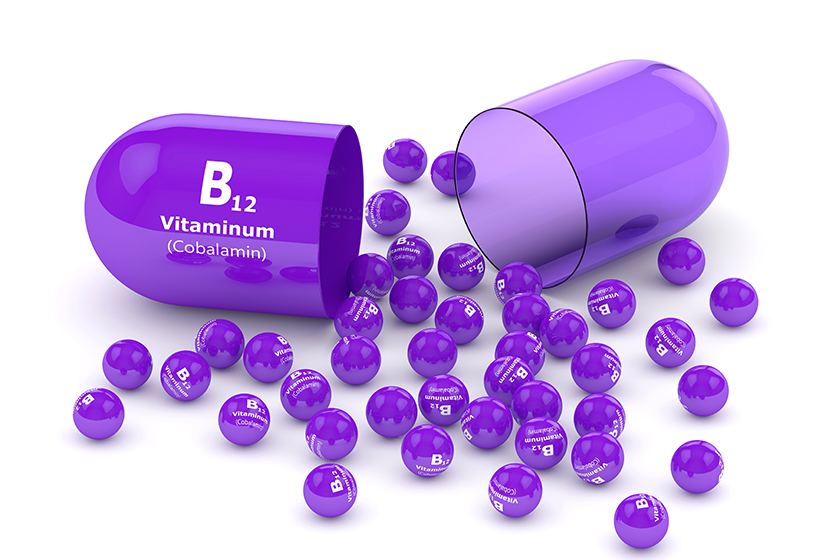Maintaining proper levels of Vitamin B12 becomes increasingly important for our well-being in old age. Vitamin B12 is vital for nerve function, red blood cell production, and DNA synthesis and understanding the ideal vitamin B12 elderly dosage is key to supporting our health.
Why Vitamin B12 is Important for Older Adults
Vitamin B12 plays a critical role in several bodily functions, especially in maintaining nerve health and producing red blood cells. For older adults, Vitamin B12 is particularly significant due to its role in preventing cognitive decline, mood changes, and fatigue. Research shows that deficiencies in B12 may increase the risk of anemia and neuropathy, impacting quality of life in the elderly population.
Challenges in Vitamin B12 Absorption with Age
As the body ages, it naturally produces less stomach acid, which is necessary to absorb Vitamin B12 from food. This decline in stomach acid can lead to a reduced ability to absorb B12, especially in people over the age of 50. Furthermore, conditions like atrophic gastritis and the use of certain medications can further inhibit absorption, as cited by National Institutes of Health (NIH).
Recommended Vitamin B12 Dosage for the Elderly
The standard recommendation for Vitamin B12 in adults is approximately 2.4 micrograms per day. However, older adults may benefit from a slightly higher intake due to decreased absorption rates. According to the Mayo Clinic, daily supplements of 500 micrograms to 1,000 micrograms are often recommended to help older adults maintain adequate B12 levels, especially if they are at risk of deficiency.
How to Take Vitamin B12: Food vs. Supplements
Older adults can obtain Vitamin B12 from animal products, including eggs, meat, fish, and dairy. However, because natural absorption can be limited, supplements are often a more reliable source for the elderly. Oral supplements, sublingual (under-the-tongue) tablets, or injections can help older adults maintain optimal B12 levels when dietary intake alone is insufficient.
Signs of Vitamin B12 Deficiency in Older Adults
Vitamin B12 deficiency may present as fatigue, memory issues, and weakness in older adults. Some may experience numbness or tingling in their hands and feet due to nerve damage caused by low B12 levels. If your loved one shows these symptoms, it may be worth discussing B12 testing and supplementation with their healthcare provider.
Testing for Vitamin B12 Levels
A simple blood test can determine whether your loved one has adequate Vitamin B12 levels. According to the American Association for Clinical Chemistry (AACC), normal levels generally fall between 200 and 900 picograms per milliliter. Monitoring B12 levels is especially helpful if your family member has absorption issues or chronic conditions that interfere with nutrient intake.
Who is at Risk of Vitamin B12 Deficiency?
Certain groups of elderly adults are at higher risk of Vitamin B12 deficiency. These include those with digestive conditions like Crohn’s disease or celiac disease, individuals who have had stomach surgery, and those taking acid-reducing medications. Vegans and vegetarians are also at risk since plant-based diets typically lack adequate Vitamin B12, as indicated by the Harvard T.H. Chan School of Public Health.
Choosing the Right Form of Vitamin B12 for Your Loved One
Vitamin B12 supplements come in various forms, such as cyanocobalamin and methylcobalamin. Cyanocobalamin is commonly used in supplements and is considered highly effective for most individuals. Methylcobalamin, however, is often recommended for older adults with absorption issues, as it is more bioavailable and can be more easily utilized by the body.
Potential Benefits of Vitamin B12 for Cognitive Health
Studies suggest that adequate Vitamin B12 intake may support cognitive function in older adults, reducing the risk of memory decline and confusion. A study cited by the American Journal of Clinical Nutrition found that individuals with higher B12 levels showed better cognitive performance, particularly in memory and reasoning tasks. These findings highlight the potential value of B12 in preserving mental sharpness as individuals age.
Risks and Side Effects of High Vitamin B12 Intake
Vitamin B12 is water-soluble, meaning excess amounts are typically excreted in urine, making toxicity unlikely. However, some individuals may experience mild side effects like headaches or dizziness with high doses. It is wise to consult with a healthcare provider to avoid excessive intake and manage any unexpected reactions, especially in the elderly.
Supporting Your Loved One’s Health with Adequate Vitamin B12 Intake
Vitamin B12 is a simple yet powerful nutrient that supports many facets of an older adult’s health. By understanding the right dosage, potential risks, and how to address deficiencies, you can help your family member maintain their vitality and well-being. Regular check-ups and a balanced approach to supplementation can make a meaningful difference in the quality of life for the elderly.







